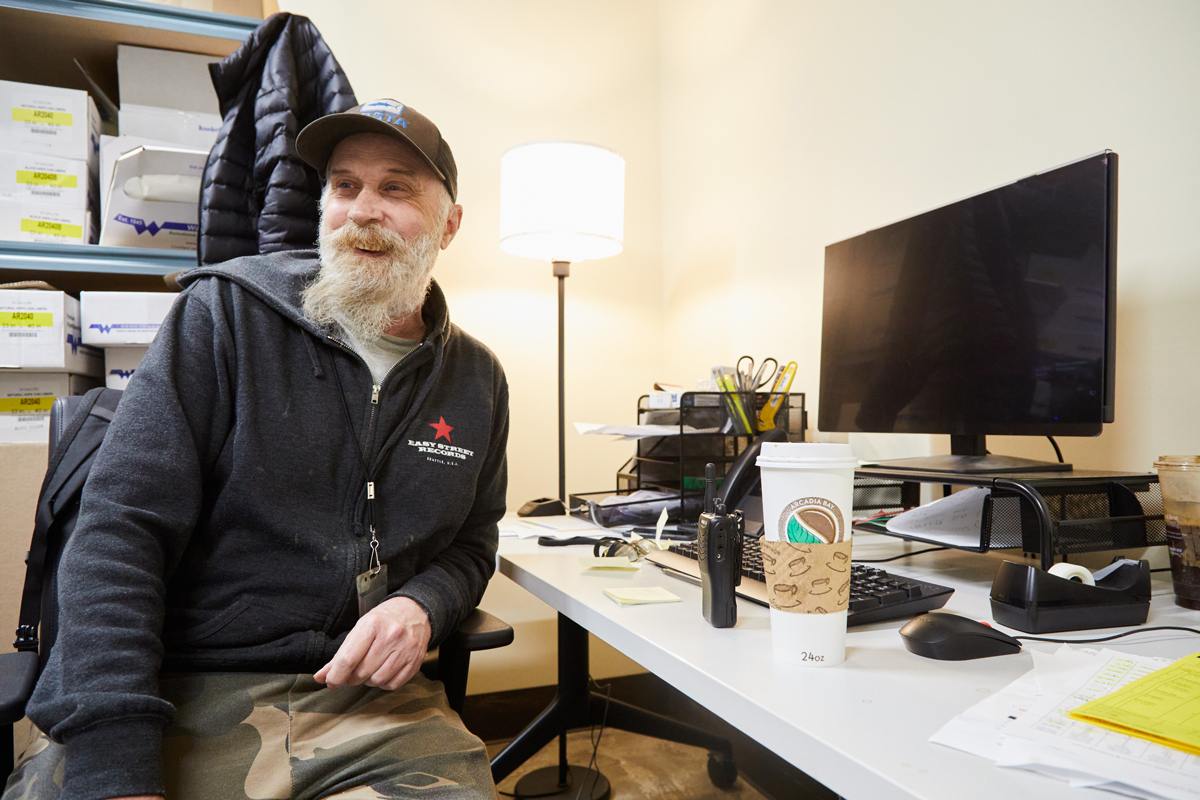Many people want something to be done about homelessness—but that work can’t happen by magic. It takes hours of patience and hard work from dedicated people like Lead Residential Specialist Walter and his colleagues. Without these caring, skilled professionals who support more than 1,100 residents in Plymouth buildings every day, there can be no progress on the homelessness crisis.
During his eight years at Plymouth, Walter has seen firsthand the complex challenges of someone who’s been living without a home for many years. When a person has been living in a tent and feeling constantly on edge, for example, the transition to four walls and a door is not exactly easy. But what he’s seen in his time at Plymouth has given him plenty of reason for hope:
“I’ve seen enough success stories that I’m a believer. That’s why I’m still here,” he says.
Born and raised in Seattle, Walter spent his 20s as a self-described raging punk rocker—riding the wave of the 90s music scene as a “drummer in every bar and venue in town.” From the stage to Plymouth Housing’s buildings, life looks a little different now.

Walter, a residential services specialist at Bertha Pitts Campbell place, has been on the Plymouth Housing team for eight years.
Days can be busy or not so busy. It just depends. Between the building logs, maintenance issues, incident reports, and general paperwork, this Seattle native is basically a jack-of-all trades. There’s also a lot of communication required. Each day begins by checking in on the person who’s finishing up with the graveyard shift to see what kind of a night they’ve had. Walter stays attuned to the pulse of his building and its people—residents and staff alike. Everyone is in it together.
“I had a union job prior to this one. I was making good money, but I like this job a lot more, because of the type of people that it attracts,” he says. “It’s a people job, and I’ve always liked the type of people who work for Plymouth Housing.”
Plymouth has grown a lot. When Walter started, there were only six buildings. He was mostly busy with paperwork and couldn’t really talk to anybody. Now, with 17 buildings total, the whole organization is much larger and more complex. Walter tries to maintain Plymouth’s original “grassroots” feel by focusing on what he can control: his daily communication with caseworkers and managers. It’s important to make his colleagues feel supported and cared about—which directly impacts the residents’ experience, too.
Margaret Bird-Burgin, an associate residential services manager, has greatly benefitted from Walter’s mentorship and feedback. She first worked with Walter at Plymouth’s Scargo/Lewiston building.
“I got to observe Walter leading that community through one of its most traumatizing and difficult periods without much recognition for his work,” she says. “He continues to be invaluable to the community he is now serving at Bertha Pitts Campbell Place.”
It can be a hard, thankless business to do this work. Many Plymouth residents are struggling to have compassion for themselves as they navigate substance-use issues, health challenges, depression and anxiety, just to name a few. When the resident population is dealing with so much, it’s inevitable that there will be bad days. But of course, there are so many reasons to keep going.
“I would like the public to know how tough our work is,” Walter says. “But also to know that there are tough people on our staff who meet those challenges head-on every day, no matter what.”